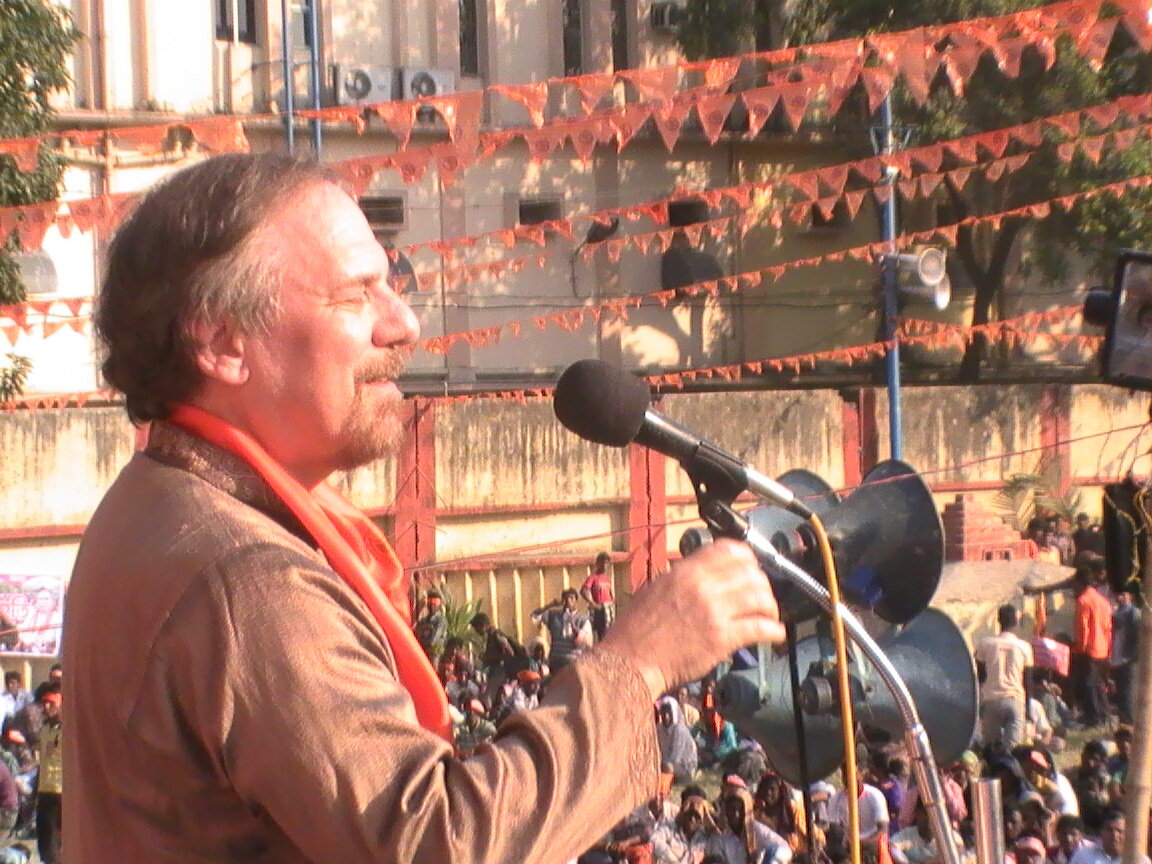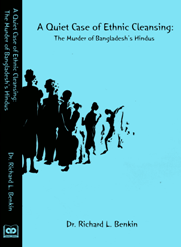Interfaith Strength
The Human Rights work of Dr. Richard L. Benkin
Stop the Ethnic Cleansing of Bangladesh’s Hindus
In 1951, Hindus were almost a third of the East Pakistani population. When East Pakistan became Bangladesh in 1971, they were about a fifth; 30 years later less than a tenth; and today one in 15. During that time and continuing today, they face ongoing atrocities that Bangladeshi governments, including the present allow to go on with impunity. Government officials refuse to prosecute the perpetrators and often participate in their cover ups. According to Bangladeshi researchers, the country will be free of Hindus before the middle of this century. We must stop this “quiet case of ethnic cleansing.” There is extensive evidence in my book (noted below) and in many of the recent news articles on this site. Learn more...
Freedom for pashtuns, Baloch, and Sindhi
There is no such thing as a “Pakistani” aside from one who lives within the borders of Pakistan. That nation is in reality an agglomeration of nations forced together under the discredited idea that a common religion unites peoples and separates them from others. Pashtuns, Baloch, and Sindh in Pakistan and in exile face severe human rights atrocities, illegal appropriate of their resources, and suppression of their culture. And the world remains silent despite their human national rights, religious openness, devotion to equal rights, and their being pro-Israel and pro-democracy outposts in a region devoid of both. Recently, Muslim Pashtuns have attacked the Taliban. Learn more...
What is Moderate Islam?
Estimates of how many Muslims could be considered followers of radical Islam vary widely, and there are few guides to help determine moderates versus radicals. Observers often sit at the extremes, either seeing all Muslims as open or closeted jihadis or recoiling from any attempt to link Islam with international terror. Both positions are overly simplistic, and the lack of rational principles to absolve the innocent and identify the accomplices of terror has led governments and individuals to accept jihadis as moderate. What is Moderate Islam? brings together an array of scholars—Muslims and non-Muslims—to provide this missing insight. This wide-ranging collection examines the relationship among Islam, civil society, and the state. The contributors—including both Muslims and non-Muslims—investigate how radical Islamists can be distinguished from moderate Muslims, analyze the potential for moderate Islamic governance, and challenge monolithic conceptions of Islam. Learn more...
A Quiet Case of Ethnic Cleansing
After India’s 1947 partition and subsequent population movements, Hindus were a third of East Pakistan’s population; when East Pakistan became Bangladesh in 1971, they were less than a fifth; 30 years later under a tenth; and one in 15 today. Bangladeshi Hindus face government tolerated murder, rape, abduction, forced conversion, land grabs, and outright pogroms. Despite almost 50 million Hindus missing from Bangladesh’s people, the world has remained impassive, if not often silent about it. A Quiet Case of Ethnic Cleansing: the Murder of Bangladesh’s Hindus rips the cover off this atrocity with testimony by Hindus in Bangladesh and India; confrontations with their victimizers; and extensive research documenting a deliberate effort by the “moderate Muslim nation” of Bangladesh to kill, kick out, or convert Hindus; and the complicity of those who should be defending them. It is a call to action with practical solutions to end this quiet case of ethnic cleansing.
A Voice for the Voiceless; an advocate for ignored victims
Richard Benkin fights for Hindus in Bangladesh; Pashtuns, Baloch, and Sindhi in Pakistan; and for justice worldwide.





